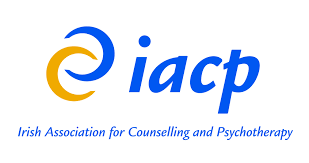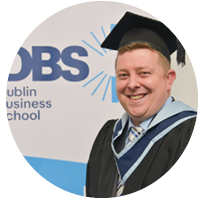Overview


Counselling and Psychotherapy provide the opportunity to speak in one's own terms in order to articulate the difficulties and the questions in one's life. They offer the opportunity of clarifying the direction, or its lack, in one's life. In recent decades counselling and psychotherapy have had a major contribution to the alleviation of distress and suffering in the everyday human experience of loss, bereavement, trauma, depression, choice and relationships. Skills adapted from the fields of counselling and psychotherapy are now an essential part of many work roles and an expertise in this area can be the basis of professional development. Counselling and Psychotherapy have enjoyed significant growth in an Ireland that has seen great social change in recent years.
Please note that completion of a Foundation course in Counselling & Psychotherapy is not a pre-requisite for entry on to this programme.
Key Features of this Programme
-
Recognised by the Irish Association for Counselling and Psychotherapy (IACP)
-
The orientation is primarily humanistic / integrative / psychodynamic but it also introduces students to the principles of psychoanalysis, developmental psychology, existential psychotherapy and cognitive behavioural therapy (CBT)
-
Central to the course are personal development through personal therapy and process group work, supervised clinical practice (years 3 & 4) and theoretical study
-
Teaching is primarily interactive and focused on the students' engagement with the material on the programme
-
Learning is skills-based and experiential, in small group formats (maximum of 15 per training group, 12 per process group and 7 per clinical supervision group in years 3 & 4)
-
We have a dedicated placement officer to assist students in finding work placements to complete their necessary client work
-
Of interest to those who would like to learn counselling skills and understand their basis in psychotherapeutic practice
-
Enhances students current work practices e.g. health and social care professionals, teachers, Gardai, community workers, voluntary sector workers and many more
-
To inform about the potential contribution of the approaches studies as well as their limitations
-
To provide experiential learning of counselling and psychotherapy skills in a classroom setting in years 1 and 2 and in clinical settings in years 3 and 4
-
To gain experience of the process of counselling/psychotherapy in both individual and group settings
-
To gain knowledge of the main categories of psychopathology
-
To acquire significant research and writing skills through essay writing and by carrying out primary research in the area of counselling and psychotherapy
-
To prepare students to undertake the further training and education necessary to meet the relevant criteria for eventual accreditation by the appropriate professional bodies
-
To have acquired a broad undergraduate education and the practical and intellectual skills required for postgraduate education and a variety of career paths.
The BA (Hons) in Counselling and Psychotherapy programme has been designed to meet the criteria of a core training course. It includes the required counselling skills, personal development and theoretical components which are the basis for it to be recognised by the Irish Association for Counselling and Psychotherapy (IACP) and awarded by Quality and Qualifications Ireland (QQI). The orientation of the course is integrative/humanistic with a psychodynamic perspective. Students only being supervised client work following the completion of all modules and requirements at Level 1 and 2 of the programme and a decision regarding suitability to practice.
Delivery
All learners are expected to attend in person in class.
Entry Requirements
The minimum entry requirements for the BA (Hons) in Counselling & Psychotherapy are:
● Applications are welcome from those with Leaving Certificate or Level 5 FETAC full award and those with or without a primary degree. However, those under the age of 23 may not have the necessary life experience to satisfactorily participate in this programme, so it is likely to suit mature students.
● For applicants whose first language is not English and who have not previously undertaken a degree taught through English, evidence must be provided of proficiency in English language equivalent to B2+ or above on the Common European Framework of Reference for Languages (CEFRL). This must be evidenced through a recognised English Language test such as IELTS, Cambridge Certificate, PTE or DBS English Assessment. Test certificates should be dated within the last two years to be considered valid.
● It is a requirement that all applicants are interviewed to assess professional suitability.
Garda Vetting
The National Vetting Bureau (Children and Vulnerable Persons) Acts 2012-2016 make it mandatory for people working unsupervised with children or vulnerable adults to be vetted by the Garda Siochana National Vetting Bureau. Under the Acts, anyone whose work or activity involves unsupervised access to children or vulnerable adults must be vetted. Workers include staff, volunteers and those on student placements working for a relevant organisation where they have access to children and/or vulnerable adults.
DBS offers a number of educational Programmes that require students to undertake placements with external agencies, which will bring them into contact with the public and in which they will assume positions of trust. It is for this reason that students on these type of programmes are required to undergo vetting prior to commencing placements (or visits).
New entrants on to these programmes will receive the relevant form and information in their orientation packs and will need to complete the process before their final registration on the course can be completed. At the time of application, students will be required to declare as to any previous convictions. Students can start on the course before their Garda clearance is completed but may be withdrawn if the vetting does not produce a satisfactory finding.
Where a vetting process identifies a previous conviction the case will be referred to an internal College Vetting Committee. This committee will consider all relevant information in relation to a disclosure from the vetting process and make a determination on the case on behalf of the College.
If a student has started on the course and is withdrawn because of a conviction that was not declared at the time of application, any fees paid will not be refunded.
DBS will charge a fee of €25 to each student for the administration and costs of obtaining Garda clearance. This fee is payable at the commencement of the programme and is non refundable.
Student Testimonial
“I chose DBS because it has a good reputation for the counselling and psychotherapy course and for the location. The lecturers and supervisors were fantastic - engaging, knowledgeable and open to questions. The staff did a fantastic job of overcoming the challenges presented by COVID19, the online classes worked really well.”
“By completing this course, it provided me with a new option in my career path. My studies allowed me to practice as a therapist outside of work. The course improved my overall confidence and way of being, it’s fantastic.”
David Cosgrove
BA (Hons) in Counselling and Psychotherapy
